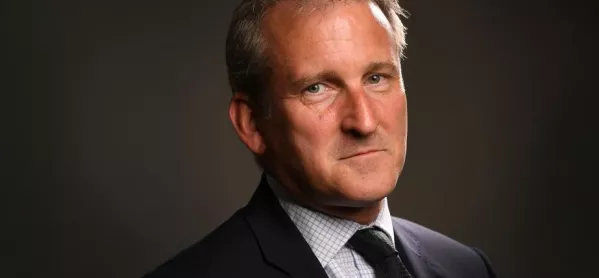Schools are “too often” forced to try and support children in need “as best they can” because social care services are not there for them, Damian Hinds has said.
In a report on the government’s children in need review, the education secretary says that schools find themselves “supporting children in ways far beyond their purpose in providing an education”.
Children in need are defined as those who have been in contact with a social worker. According to data from the Department for Education, they have significantly worse outcomes than their peers.
Quick read: Data reveals poor pupils’ Xmas jumper shame
Read: Labour to swap ‘social mobility’ for ‘social justice’
Opinion: If we are to ask schools to take on inequality...
In a report concluding the government’s children in need review, Mr Hinds says that transforming these outcomes “will always require services beyond schools to prevent and address why children are in need, promoting safety and stability through social care”.
He goes on: “Without this, schools too often find themselves with no choice but to try and support as best they can, the vulnerable pupils they see each day - supporting children in ways far beyond their purpose in providing an education.
“Our social care reforms already underway are about driving up the quality of local authority services, developing a highly capable, skilled workforce, and investing in strengthening families. We still have further to go.”
Mr Hinds says that “tackling the drivers of need must be a common endeavour across government, not an ask of schools”.
He adds that he has been “struck by the dedication of school leaders and staff in making sure that education makes a positive difference to every child’s life chances”.
“That commitment is unwavering and ambition for children uncompromised, in spite of the pressures that I recognise schools and social care are facing.
“The role of schools is in educating children, but I have seen how far they are going above and beyond this, in order that children are attending each day, ready to learn, and able to benefit from the best that our schools can offer.”
The review has a number of recommendations that affect schools.
For example, it says the government will “consider whether additional safeguards are needed” for children in need “as part of the planned consultation on arrangements around exclusions and alternative provision” following the Timpson review.
The government will “explore whether there is a case for extending and adapting the virtual school head role” that currently supports looked after children, and will “strengthen the expectation that local authorities should share, and schools should hold and use information about children currently needing a social worker, considering this as a matter of routine based on existing powers”.
There is also a commitment “to improve the clarity, timeliness and transparency of the in-year admissions process, and strengthen the Fair Access Protocols, ensuring this can be used to admit children who currently need a social worker”.




